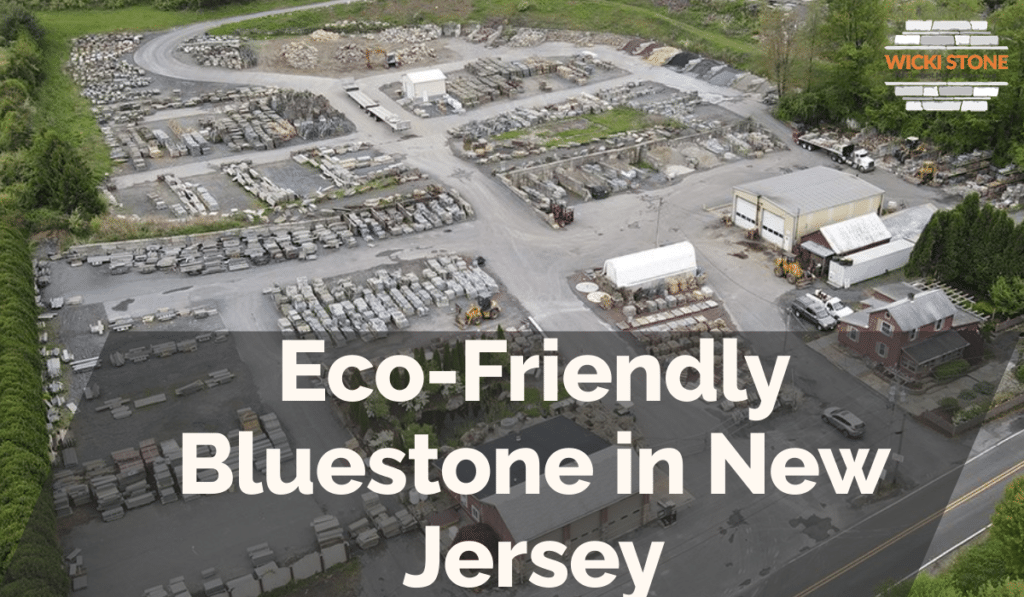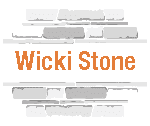
Eco-Friendly Bluestone in New Jersey
The palette of nature is rich and diverse, offering a multitude of options for use in construction and landscaping projects. Among the various unique offerings of the natural world, one shines for its versatility, durability, and aesthetic appeal: bluestone. Particularly in New Jersey, this eco-friendly material is gaining traction for its diverse application and eco-friendly characteristics. In this article, we delve into the world of bluestone, its eco-friendly nature, and its rise in popularity in New Jersey.
What is Bluestone?
Bluestone is a kind of sandstone that accumulates over millions of years from the compacted sand layers under the surface of the earth. It gets its unique blue-gray hue from the iron compounds present within. Known for its durability and resistance to environmental damage, bluestone is a favored material for a wide range of construction and landscaping purposes. The heart of bluestone quarries in the United States are in the northeast corner of Pennsylvania.
Eco-friendly Features of Bluestone
- Bluestone is a natural material, and its production does not require the utilization of harmful chemicals.
- Bluestone is highly durable, meaning it requires less frequent replacement. Bluestone in New Jersey has proven that it can last well over 100 years, and old bluestone is prized as a reclaimed bluestone product.
- It does not emit harmful gases or substances into the atmosphere, thus aiding in maintaining a healthy environment.
- Bluestone is 100% recyclable. Old or damaged bluestone can be finely crushed and used as aggregate in concrete or as a base for roads or buildings. As mentioned above old Bluestone is highly prized as reclaimed stone.
- At Wicki Wholesale Stone Inc. we are located close to the Bluestone quarries of Pennsylvania so transportation to bring the stone to our yard in Warren County New Jersey is reduced.
Bluestone Usage in New Jersey
In New Jersey, the use of bluestone has been trending upwards over the last few years. Homeowners, architects, and landscapers have been finding new and innovative ways to incorporate this versatile material into their plans. Bluestone is often seen in terraces, patios, walkways, garden paths, column caps, and sills inside and outside the home. There are both Thin Building Stone Veneer and Full Size Building Stone Veneer bluestone products – typical uses for bluestone veneer stone include fireplaces, outdoor kitchens, stone wall cladding, fire pits and more. The natural beauty of bluestone allows it to blend seamlessly with a wide range of styles and applications.
Frequently Asked Questions
What are the different finishes available in Bluestone?
Bluestone is offered in a variety of finishes including natural cleft, thermal, honed, and polished
What is the difference between natural and thermal bluestone?
Natural cleft bluestone has a rougher, more natural texture whereas thermal bluestone is flame-treated to give a more uniform, smooth surface.
Are There Different Bluestone Colors?
Bluestone comes in two colors. At Wicki Wholesale Stone Inc. we define the colors as Blue Select Bluestone which is pure blue, gray and silver tones, and Full Range Color Bluestone which introduces earth tone accents such as brown, tan and even green hues.
Conclusion
Opting for eco-friendly materials like bluestone for construction and landscaping jobs could be a significant step towards a sustainable future. While offering the aesthetics, durability, and versatility required in construction, bluestone has the added advantage of being environmentally friendly. Bluestone is a beautiful, versatile and durable product for indoor and outdoor stone projects. To learn more about the full line of bluestone products available at Wicki Wholesale Stone, Inc. please visit this link.
